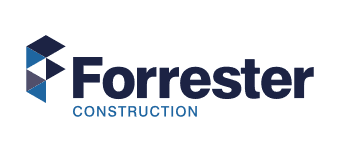David Uffelman Joins Forrester as VP of Operations
 David Uffelman joins Forrester Construction in the role of Vice President, Operations. With nearly 30 years in the industry and $2 billion in completed construction projects during his career, David has a diverse portfolio ranging from large office building, commercial and government projects to educational facilities, interior renovations and historic preservation work. This experience, combined with his passion for and knowledge of field operations, complements Forrester’s mission to offer clients high value-added general contracting, construction management and preconstruction services.
David Uffelman joins Forrester Construction in the role of Vice President, Operations. With nearly 30 years in the industry and $2 billion in completed construction projects during his career, David has a diverse portfolio ranging from large office building, commercial and government projects to educational facilities, interior renovations and historic preservation work. This experience, combined with his passion for and knowledge of field operations, complements Forrester’s mission to offer clients high value-added general contracting, construction management and preconstruction services.
President Steve Houff said “By adding David to our team, we are adding experience, knowledge and a resource to support Forrester Operations. His style is very collaborative, which will only help us continue to offer best-in-class client service and help Team Members who work with him to grow.” Houff and Forrester’s Executive Committee note that David shares a strong commitment to the company’s core values – teamwork, doing the right thing and making it happen for clients, business partners, Team Members and the community.
Please join us in welcoming Forrester Construction vice president David Uffelman to the team. He can be reached via email at duffelman@forresterconstruction.com or via LinkedIn.
Q & A with David Uffelman, VP, Operations
Where are you from?
I was born and raised in Fairfax County, VA and have lived Loudoun County, VA for the past 25 years.
Tell us a little about your family background.
I have been married to my wife for 29 years and our daughter Hayley is 22. We live on a small farm with four horses, dogs, cats and various other animals.
How did you get started in construction?
All through high school and college I worked summer jobs in construction. I started off building residential custom homes and moved into commercial construction. I quickly grew to love building. When I got to college, I realized construction was the profession that I wanted to pursue so, I enrolled in the Building and Construction program at East Carolina University. I had an internship with a general contractor during my last few years of college and went right to work for them immediately following my graduation.
What do you like to do in your spare time?
Golf, fishing, music and yard work keeps me busy.
What do you like about being a builder?
I like the satisfaction of working with a team to accomplish our goals by solving problems and overcoming challenges.There’s something very rewarding about changing the skyline and having something tangible to show for your work. One of my proudest moments as a builder was being a part of the U.S. Capitol Visitor Center project, a 580,000 square foot addition to the Capitol building. The coordination and logistics involved in performing work while Congress was in session was incredible. We even coordinated work through a presidential inauguration. It was a historic project and a major success. Communication, planning and coordinating with all stakeholders played a huge role in that success.
What does it mean to be a great builder?
Well, first it all starts with safety. That’s the most important part of everything we do as builders. Putting safety first.
After that, being a great builder is about completely understanding your client’s objectives, expectations and wishes. That happens through communication, planning and focused execution. In the end, we call ourselves great builders when we deliver quality results while continually improving. We should always be asking, “What can we do better?”
Why is Forrester a good fit for you?
I was attracted to Forrester because of the company’s reputation and culture. Through the years, I have known several Forrester Team Members, and I have frequently heard that Forrester has a great, committed team. I recently attended the DC Courts C Street Addition and Renovation topping-out party, and I met a number of members from the client’s team. They were truly excited, not just to be celebrating this milestone, but at the work that the Forrester project team is doing. It’s really impressive because it is continuing work for a long-term client, and it speaks volumes about Forrester’s performance and commitment to meeting the client’s expectations.
I have also found Forrester to be a company with strong leadership, unique and challenging projects and a proven track record of performance. I am also impressed with the strategic vision and values. It was a great fit for these reasons.
What is your impression of the Forrester Team and the company’s culture?
So far, I’ve been very impressed with everyone. When I joined the company, I made an effort to introduce myself to each and every Team Member, because it’s all about the people. I have found that in each group there are experienced professionals with a strong commitment to the company’s core values. I think the long-term tenure and comradery says it all, and I am excited to have joined the team.
What will be your main focus, short and long-term?
In the short term, I will focus on getting to know the Forrester Team, our clients and business partners. I want to build on the existing strong, trusting relationships there. Long-term, I will be very focused on achieving our strategic goals, making sure Forrester is known as a great builder with strong client and subcontractor relationships and an outstanding team.
What skills are going to be an asset in your new role?
I would say that my strengths are in scheduling, budget and cost control and quality management. My role is to support our Operations project teams. Being a resource for planning, monitoring and executing work with particular attention to people, processes and tools.
I like to help teams continue to grow so, I focus heavily on training and process improvement. So, that’s what I really hope to add.
What makes a project successful?
- A proactive approach to safety, like Forrester’s People-Based Safety program.
- The client having a strong desire to wants us on their next project.
- Subcontractors and suppliers who can’t wait to team together again.
- Zero lingering quality issues.
- The collective team had fun.
- All parties involved have made a reasonable profit.
What takes client service from good to exceptional?
Exceptional client service is when the entire contracting team exceeds the client’s expectations, in all aspects of the work. You do this by beginning the project with meaningful dialog that clarifies and aligns the client’s expectations and with the project team’s goals. Once these are set, develop a plan to exceed. Constant feedback sessions, communication and collaboration are essential.
What are the most important ways contractors can add real value for their clients?
Contractors can add value for their clients in a number of ways. Having clarity to the stakeholder’s objectives, expectations and risks is a good start. From there, preparing the budgetbid and then planning and executing the work with the goal of taking the pain out of the client’s life. The key is bringing a constant sense of urgency while making the project enjoyable and fun.
What role does building relationships with business partners and subcontractors play in being successful?
Construction is very much a people business. Subcontractors are our life blood, and without them we don’t exist. That’s why it’s imperative that we develop strong relationships with our partners. I prefer to just talk to people, and talk as frequently as possible. I want to make a personal connection. You don’t develop relationships through emails and texts. This opens the door for future opportunities which creates more chances for continuous improvement.
Did you have a mentor? What did you learn from them?
I’ve been lucky to have several mentors that I learned many valuable lessons from that shaped my career. The most important ones are having strong but flexible process, pay attention to detail because the little things make a difference and accountability starts with yourself. You can’t lead a team without setting the example.
Another important lesson… This is an ever changing and fast pace business. It requires constant communication, clarification and adaptability to be successful.
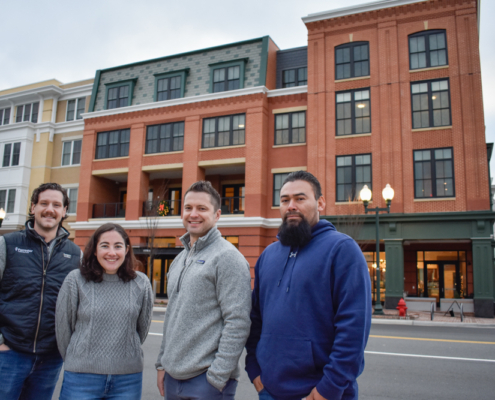 https://www.forresterconstruction.com/wp-content/uploads/2024/02/Sunrise-of-Vienna-Team-Photo.jpg
667
1000
Rachael Thomas
https://www.forresterconstruction.com/wp-content/uploads/2017/04/forrester-construction-logo-md-340x156.png
Rachael Thomas2024-02-02 09:45:202024-02-02 09:45:20Forrester Honored with Subby Award Nominations
https://www.forresterconstruction.com/wp-content/uploads/2024/02/Sunrise-of-Vienna-Team-Photo.jpg
667
1000
Rachael Thomas
https://www.forresterconstruction.com/wp-content/uploads/2017/04/forrester-construction-logo-md-340x156.png
Rachael Thomas2024-02-02 09:45:202024-02-02 09:45:20Forrester Honored with Subby Award Nominations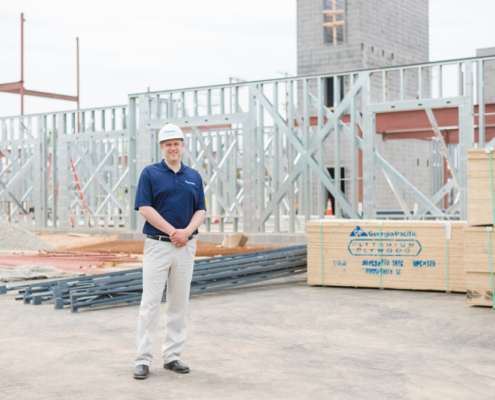 https://www.forresterconstruction.com/wp-content/uploads/2024/01/mark-rolfs-vp-of-construction-operations-4.jpg
668
1000
Rachael Thomas
https://www.forresterconstruction.com/wp-content/uploads/2017/04/forrester-construction-logo-md-340x156.png
Rachael Thomas2024-01-12 10:20:012024-01-12 10:20:01Mark Rolfs Promoted to VP of Construction Operations
https://www.forresterconstruction.com/wp-content/uploads/2024/01/mark-rolfs-vp-of-construction-operations-4.jpg
668
1000
Rachael Thomas
https://www.forresterconstruction.com/wp-content/uploads/2017/04/forrester-construction-logo-md-340x156.png
Rachael Thomas2024-01-12 10:20:012024-01-12 10:20:01Mark Rolfs Promoted to VP of Construction Operations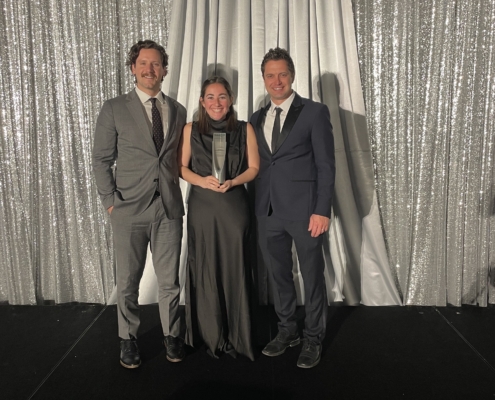 https://www.forresterconstruction.com/wp-content/uploads/2024/01/NAIOP-NoVA-2023-Sunrise-Vienna-Award-of-Merit-scaled.jpg
1024
768
Rachael Thomas
https://www.forresterconstruction.com/wp-content/uploads/2017/04/forrester-construction-logo-md-340x156.png
Rachael Thomas2024-01-03 10:22:302024-01-03 10:22:30Forrester Projects Earn Industry Recognition in 2023
https://www.forresterconstruction.com/wp-content/uploads/2024/01/NAIOP-NoVA-2023-Sunrise-Vienna-Award-of-Merit-scaled.jpg
1024
768
Rachael Thomas
https://www.forresterconstruction.com/wp-content/uploads/2017/04/forrester-construction-logo-md-340x156.png
Rachael Thomas2024-01-03 10:22:302024-01-03 10:22:30Forrester Projects Earn Industry Recognition in 2023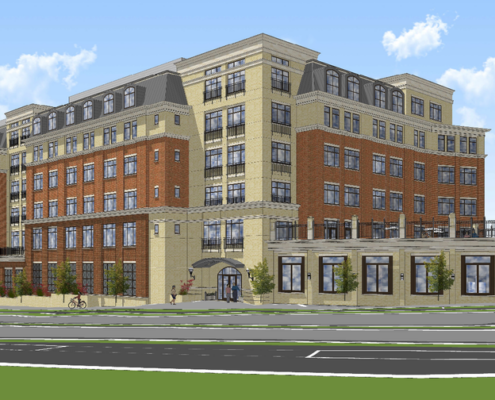 https://www.forresterconstruction.com/wp-content/uploads/2023/11/kensington-rendering2023.png
504
1024
Rachael Thomas
https://www.forresterconstruction.com/wp-content/uploads/2017/04/forrester-construction-logo-md-340x156.png
Rachael Thomas2023-11-27 16:35:102023-11-27 16:35:10Kensington Senior Living breaks ground on facility in Bethesda
https://www.forresterconstruction.com/wp-content/uploads/2023/11/kensington-rendering2023.png
504
1024
Rachael Thomas
https://www.forresterconstruction.com/wp-content/uploads/2017/04/forrester-construction-logo-md-340x156.png
Rachael Thomas2023-11-27 16:35:102023-11-27 16:35:10Kensington Senior Living breaks ground on facility in Bethesda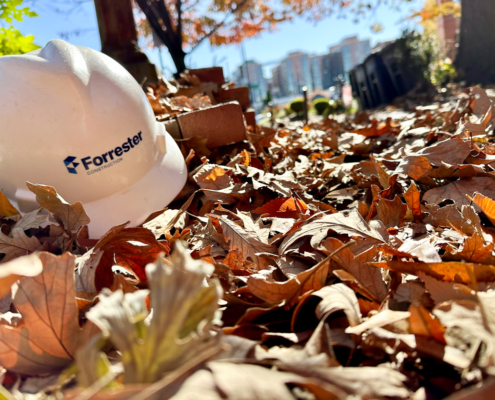 https://www.forresterconstruction.com/wp-content/uploads/2023/11/Forrester-Construction-Hardhat-in-Fall-Leaves-Autumn-Folliage.jpg
700
1024
Rachael Thomas
https://www.forresterconstruction.com/wp-content/uploads/2017/04/forrester-construction-logo-md-340x156.png
Rachael Thomas2023-11-20 14:25:132023-11-20 14:25:13Fall 2023 Forrester Construction Update | Thankful for 35 Years
https://www.forresterconstruction.com/wp-content/uploads/2023/11/Forrester-Construction-Hardhat-in-Fall-Leaves-Autumn-Folliage.jpg
700
1024
Rachael Thomas
https://www.forresterconstruction.com/wp-content/uploads/2017/04/forrester-construction-logo-md-340x156.png
Rachael Thomas2023-11-20 14:25:132023-11-20 14:25:13Fall 2023 Forrester Construction Update | Thankful for 35 Years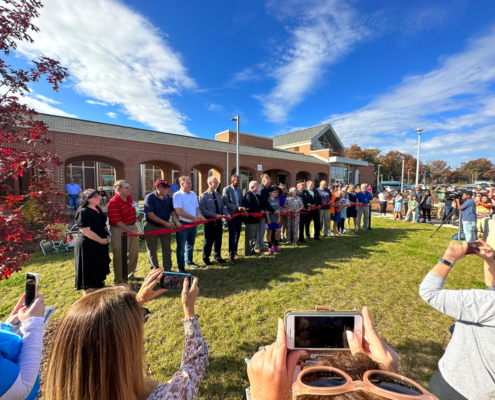 https://www.forresterconstruction.com/wp-content/uploads/2023/11/Lorton-District-Police-Station-and-Fairfax-County-Animal-Shelter-Lorton-Campus-Grand-Opening.jpg
768
1024
Rachael Thomas
https://www.forresterconstruction.com/wp-content/uploads/2017/04/forrester-construction-logo-md-340x156.png
Rachael Thomas2023-11-01 11:20:112023-11-01 11:20:11Community Celebrates Opening of Lorton District Police Station and Animal Shelter’s Lorton Campus
https://www.forresterconstruction.com/wp-content/uploads/2023/11/Lorton-District-Police-Station-and-Fairfax-County-Animal-Shelter-Lorton-Campus-Grand-Opening.jpg
768
1024
Rachael Thomas
https://www.forresterconstruction.com/wp-content/uploads/2017/04/forrester-construction-logo-md-340x156.png
Rachael Thomas2023-11-01 11:20:112023-11-01 11:20:11Community Celebrates Opening of Lorton District Police Station and Animal Shelter’s Lorton Campus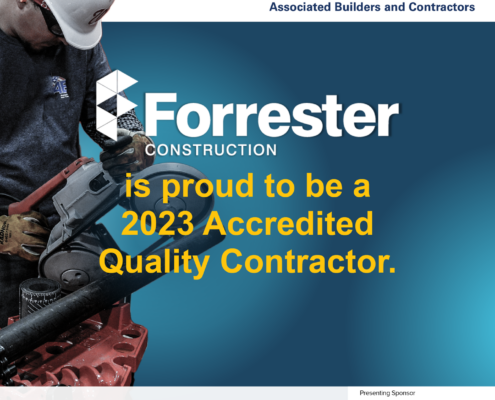 https://www.forresterconstruction.com/wp-content/uploads/2023/10/Slide3.png
1024
1024
Rachael Thomas
https://www.forresterconstruction.com/wp-content/uploads/2017/04/forrester-construction-logo-md-340x156.png
Rachael Thomas2023-10-30 13:47:202023-10-30 13:47:20Forrester Construction Named Accredited Quality Contractor for 2023
https://www.forresterconstruction.com/wp-content/uploads/2023/10/Slide3.png
1024
1024
Rachael Thomas
https://www.forresterconstruction.com/wp-content/uploads/2017/04/forrester-construction-logo-md-340x156.png
Rachael Thomas2023-10-30 13:47:202023-10-30 13:47:20Forrester Construction Named Accredited Quality Contractor for 2023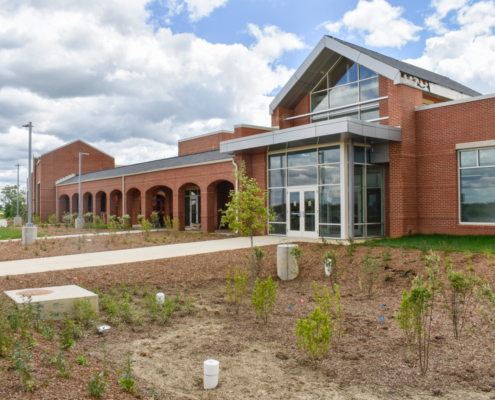 https://www.forresterconstruction.com/wp-content/uploads/2023/09/South.County.Police.and_.Animal.Shelter.Forrester-construction.jpg
683
1024
Rachael Thomas
https://www.forresterconstruction.com/wp-content/uploads/2017/04/forrester-construction-logo-md-340x156.png
Rachael Thomas2023-09-11 15:41:332023-09-11 15:41:33Lorton Police Station and Animal Shelter to Open This Fall
https://www.forresterconstruction.com/wp-content/uploads/2023/09/South.County.Police.and_.Animal.Shelter.Forrester-construction.jpg
683
1024
Rachael Thomas
https://www.forresterconstruction.com/wp-content/uploads/2017/04/forrester-construction-logo-md-340x156.png
Rachael Thomas2023-09-11 15:41:332023-09-11 15:41:33Lorton Police Station and Animal Shelter to Open This Fall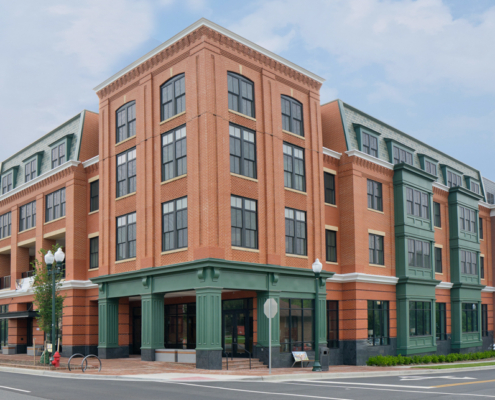 https://www.forresterconstruction.com/wp-content/uploads/2023/08/Sunrise-of-Vienna-Final-Ken-Wyner.-Forrester-construction-5.jpg
549
1024
Rachael Thomas
https://www.forresterconstruction.com/wp-content/uploads/2017/04/forrester-construction-logo-md-340x156.png
Rachael Thomas2023-08-24 10:27:232023-08-24 10:27:23Summer 2023 Forrester Construction Update
https://www.forresterconstruction.com/wp-content/uploads/2023/08/Sunrise-of-Vienna-Final-Ken-Wyner.-Forrester-construction-5.jpg
549
1024
Rachael Thomas
https://www.forresterconstruction.com/wp-content/uploads/2017/04/forrester-construction-logo-md-340x156.png
Rachael Thomas2023-08-24 10:27:232023-08-24 10:27:23Summer 2023 Forrester Construction Update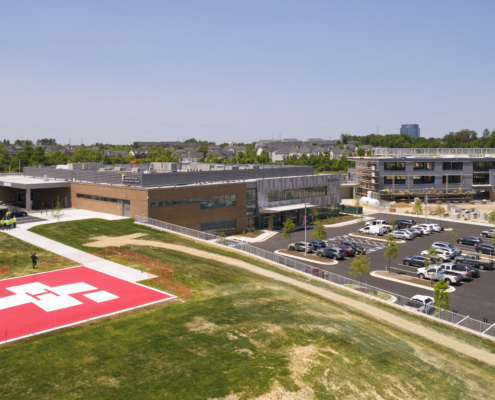 Ken Wyner Photography
https://www.forresterconstruction.com/wp-content/uploads/2023/08/UM-Laurel-Medical-Center-Drone-Photo-scaled.jpg
534
1024
Rachael Thomas
https://www.forresterconstruction.com/wp-content/uploads/2017/04/forrester-construction-logo-md-340x156.png
Rachael Thomas2023-08-09 13:39:052023-08-09 13:39:05Forrester Construction Completes UM Laurel Medical Center
Ken Wyner Photography
https://www.forresterconstruction.com/wp-content/uploads/2023/08/UM-Laurel-Medical-Center-Drone-Photo-scaled.jpg
534
1024
Rachael Thomas
https://www.forresterconstruction.com/wp-content/uploads/2017/04/forrester-construction-logo-md-340x156.png
Rachael Thomas2023-08-09 13:39:052023-08-09 13:39:05Forrester Construction Completes UM Laurel Medical Center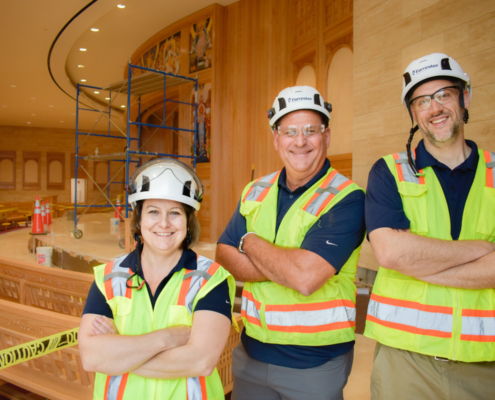 https://www.forresterconstruction.com/wp-content/uploads/2023/07/Forrester-Construction-Senior-Leaders-Kristin-Prudhomme-John-Shumar-and-Mark-Rolfs.jpg
683
1024
Rachael Thomas
https://www.forresterconstruction.com/wp-content/uploads/2017/04/forrester-construction-logo-md-340x156.png
Rachael Thomas2023-07-26 12:25:182023-07-26 12:27:48Forrester Construction Announces Kristin Prudhomme as President
https://www.forresterconstruction.com/wp-content/uploads/2023/07/Forrester-Construction-Senior-Leaders-Kristin-Prudhomme-John-Shumar-and-Mark-Rolfs.jpg
683
1024
Rachael Thomas
https://www.forresterconstruction.com/wp-content/uploads/2017/04/forrester-construction-logo-md-340x156.png
Rachael Thomas2023-07-26 12:25:182023-07-26 12:27:48Forrester Construction Announces Kristin Prudhomme as President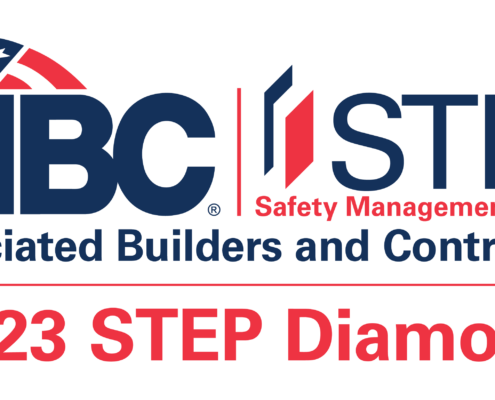 https://www.forresterconstruction.com/wp-content/uploads/2023/07/STEP-2023_Diamond.png
496
1024
Rachael Thomas
https://www.forresterconstruction.com/wp-content/uploads/2017/04/forrester-construction-logo-md-340x156.png
Rachael Thomas2023-07-18 09:19:472023-08-09 13:10:00forrester construction achieves abc national step diamond
https://www.forresterconstruction.com/wp-content/uploads/2023/07/STEP-2023_Diamond.png
496
1024
Rachael Thomas
https://www.forresterconstruction.com/wp-content/uploads/2017/04/forrester-construction-logo-md-340x156.png
Rachael Thomas2023-07-18 09:19:472023-08-09 13:10:00forrester construction achieves abc national step diamond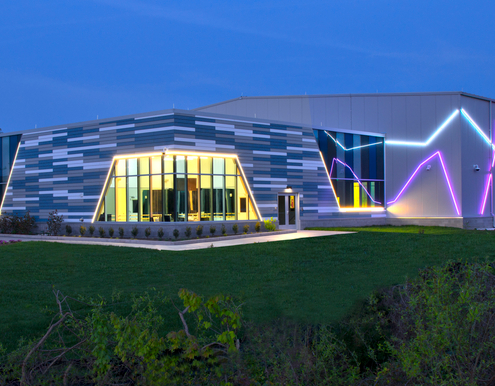 https://www.forresterconstruction.com/wp-content/uploads/2022/04/pixie_1650639508651.png
386
1023
Rachael Thomas
https://www.forresterconstruction.com/wp-content/uploads/2017/04/forrester-construction-logo-md-340x156.png
Rachael Thomas2023-07-07 13:10:452023-07-07 13:10:45Tucker Road Ice Rink Featured in Metal Construction News
https://www.forresterconstruction.com/wp-content/uploads/2022/04/pixie_1650639508651.png
386
1023
Rachael Thomas
https://www.forresterconstruction.com/wp-content/uploads/2017/04/forrester-construction-logo-md-340x156.png
Rachael Thomas2023-07-07 13:10:452023-07-07 13:10:45Tucker Road Ice Rink Featured in Metal Construction News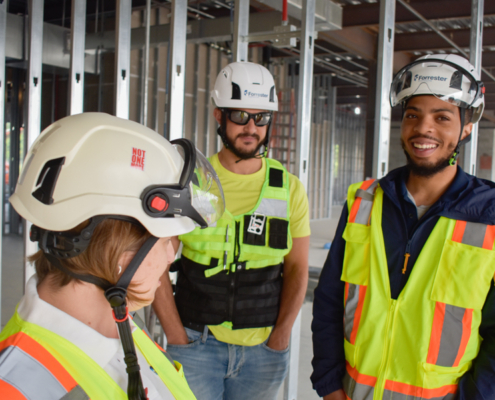 https://www.forresterconstruction.com/wp-content/uploads/2023/06/Catalyst-MOB-Forrester-Construction-Team-Members-with-President-Kristin-Prudhomme.jpg
600
900
Rachael Thomas
https://www.forresterconstruction.com/wp-content/uploads/2017/04/forrester-construction-logo-md-340x156.png
Rachael Thomas2023-06-26 12:30:222023-06-26 14:55:43The 2023 Forrester Summer Internship
https://www.forresterconstruction.com/wp-content/uploads/2023/06/Catalyst-MOB-Forrester-Construction-Team-Members-with-President-Kristin-Prudhomme.jpg
600
900
Rachael Thomas
https://www.forresterconstruction.com/wp-content/uploads/2017/04/forrester-construction-logo-md-340x156.png
Rachael Thomas2023-06-26 12:30:222023-06-26 14:55:43The 2023 Forrester Summer Internship https://www.forresterconstruction.com/wp-content/uploads/2015/05/private-schools-edmund-burke02.jpg
768
1024
Rachael Thomas
https://www.forresterconstruction.com/wp-content/uploads/2017/04/forrester-construction-logo-md-340x156.png
Rachael Thomas2023-04-26 08:40:542023-04-26 08:40:54Spring 2023 Forrester Construction Update
https://www.forresterconstruction.com/wp-content/uploads/2015/05/private-schools-edmund-burke02.jpg
768
1024
Rachael Thomas
https://www.forresterconstruction.com/wp-content/uploads/2017/04/forrester-construction-logo-md-340x156.png
Rachael Thomas2023-04-26 08:40:542023-04-26 08:40:54Spring 2023 Forrester Construction Update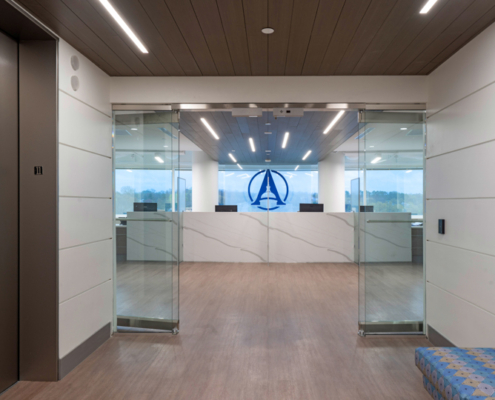 https://www.forresterconstruction.com/wp-content/uploads/2023/04/Anderson-Clinic-Shirlington-Lobby-Area-Forrester-Construction.jpg
540
800
Rachael Thomas
https://www.forresterconstruction.com/wp-content/uploads/2017/04/forrester-construction-logo-md-340x156.png
Rachael Thomas2023-04-13 08:06:582023-04-26 15:05:08Anderson Orthopedic Clinic Opens State-of-the-Art Surgery Center
https://www.forresterconstruction.com/wp-content/uploads/2023/04/Anderson-Clinic-Shirlington-Lobby-Area-Forrester-Construction.jpg
540
800
Rachael Thomas
https://www.forresterconstruction.com/wp-content/uploads/2017/04/forrester-construction-logo-md-340x156.png
Rachael Thomas2023-04-13 08:06:582023-04-26 15:05:08Anderson Orthopedic Clinic Opens State-of-the-Art Surgery Center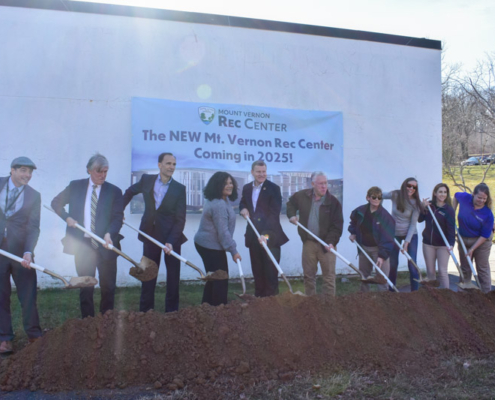 https://www.forresterconstruction.com/wp-content/uploads/2023/01/Mt-Vernon-Rec-Center-Groundbreaking.jpg
533
800
Rachael Thomas
https://www.forresterconstruction.com/wp-content/uploads/2017/04/forrester-construction-logo-md-340x156.png
Rachael Thomas2023-01-25 09:45:462023-01-25 09:46:47Forrester Construction Breaks Ground on Mt. Vernon Rec Center
https://www.forresterconstruction.com/wp-content/uploads/2023/01/Mt-Vernon-Rec-Center-Groundbreaking.jpg
533
800
Rachael Thomas
https://www.forresterconstruction.com/wp-content/uploads/2017/04/forrester-construction-logo-md-340x156.png
Rachael Thomas2023-01-25 09:45:462023-01-25 09:46:47Forrester Construction Breaks Ground on Mt. Vernon Rec Center https://www.forresterconstruction.com/wp-content/uploads/2022/11/DSC5363-2.jpg
510
700
Rachael Thomas
https://www.forresterconstruction.com/wp-content/uploads/2017/04/forrester-construction-logo-md-340x156.png
Rachael Thomas2022-11-07 17:27:222022-11-15 10:14:432022 Forrester Construction Industry Awards & Recognition
https://www.forresterconstruction.com/wp-content/uploads/2022/11/DSC5363-2.jpg
510
700
Rachael Thomas
https://www.forresterconstruction.com/wp-content/uploads/2017/04/forrester-construction-logo-md-340x156.png
Rachael Thomas2022-11-07 17:27:222022-11-15 10:14:432022 Forrester Construction Industry Awards & Recognition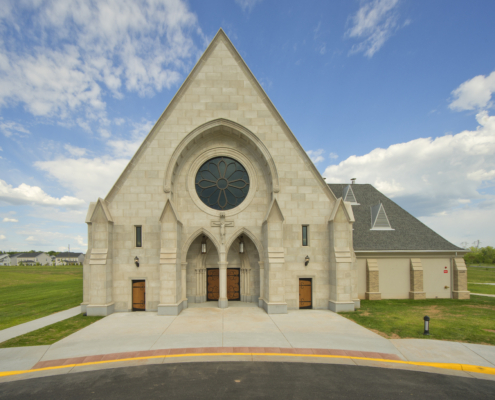 https://www.forresterconstruction.com/wp-content/uploads/2022/05/DSC5974-scaled.jpg
658
1024
Rachael Thomas
https://www.forresterconstruction.com/wp-content/uploads/2017/04/forrester-construction-logo-md-340x156.png
Rachael Thomas2022-11-01 12:28:442022-11-01 12:28:44Forrester Wins Two ABC National Eagle Awards
https://www.forresterconstruction.com/wp-content/uploads/2022/05/DSC5974-scaled.jpg
658
1024
Rachael Thomas
https://www.forresterconstruction.com/wp-content/uploads/2017/04/forrester-construction-logo-md-340x156.png
Rachael Thomas2022-11-01 12:28:442022-11-01 12:28:44Forrester Wins Two ABC National Eagle Awards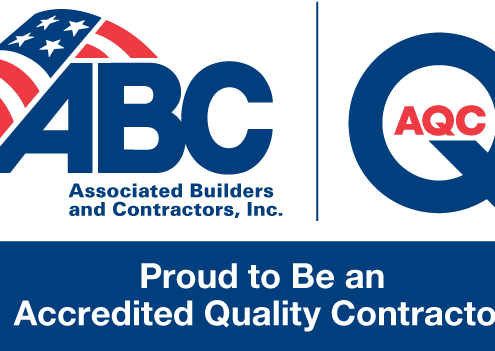 https://www.forresterconstruction.com/wp-content/uploads/2020/11/proud-to-be-AQC.png
351
600
Rachael Thomas
https://www.forresterconstruction.com/wp-content/uploads/2017/04/forrester-construction-logo-md-340x156.png
Rachael Thomas2022-10-31 12:40:432022-10-31 12:45:22Forrester Once Again Named Accredited Quality Contractor
https://www.forresterconstruction.com/wp-content/uploads/2020/11/proud-to-be-AQC.png
351
600
Rachael Thomas
https://www.forresterconstruction.com/wp-content/uploads/2017/04/forrester-construction-logo-md-340x156.png
Rachael Thomas2022-10-31 12:40:432022-10-31 12:45:22Forrester Once Again Named Accredited Quality Contractor https://www.forresterconstruction.com/wp-content/uploads/2022/07/WX8T5163.jpg
670
1024
Rachael Thomas
https://www.forresterconstruction.com/wp-content/uploads/2017/04/forrester-construction-logo-md-340x156.png
Rachael Thomas2022-07-11 16:19:592022-07-11 16:43:51These Projects Made a Splash! Check Out Some of Our Swimming Pool Projects…
https://www.forresterconstruction.com/wp-content/uploads/2022/07/WX8T5163.jpg
670
1024
Rachael Thomas
https://www.forresterconstruction.com/wp-content/uploads/2017/04/forrester-construction-logo-md-340x156.png
Rachael Thomas2022-07-11 16:19:592022-07-11 16:43:51These Projects Made a Splash! Check Out Some of Our Swimming Pool Projects…
Recently completed Studio Theatre project sets the stage for D.C. performing arts

Forrester Construction Honored as Top-Performing U.S. Construction Company by ABC
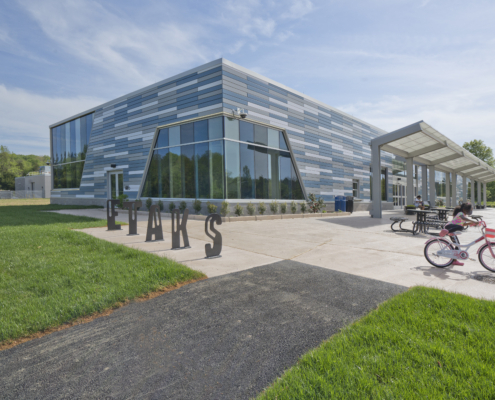 https://www.forresterconstruction.com/wp-content/uploads/2021/07/DSC4219-scaled.jpg
683
1024
Rachel Hagerty
https://www.forresterconstruction.com/wp-content/uploads/2017/04/forrester-construction-logo-md-340x156.png
Rachel Hagerty2021-08-03 10:52:552021-08-03 10:52:55Beat The Heat at our Recently Completed Projects
https://www.forresterconstruction.com/wp-content/uploads/2021/07/DSC4219-scaled.jpg
683
1024
Rachel Hagerty
https://www.forresterconstruction.com/wp-content/uploads/2017/04/forrester-construction-logo-md-340x156.png
Rachel Hagerty2021-08-03 10:52:552021-08-03 10:52:55Beat The Heat at our Recently Completed Projects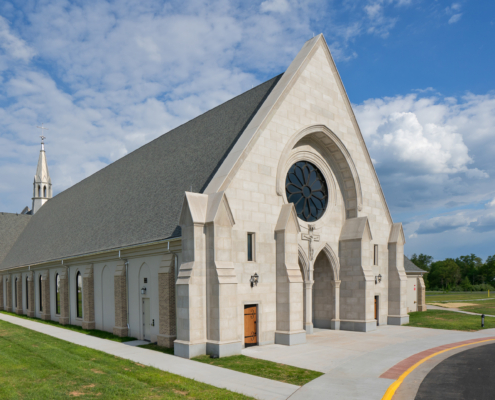 https://www.forresterconstruction.com/wp-content/uploads/2021/06/DSC6017.jpg
521
1024
Rachel Hagerty
https://www.forresterconstruction.com/wp-content/uploads/2017/04/forrester-construction-logo-md-340x156.png
Rachel Hagerty2021-06-24 10:04:212021-06-24 10:05:50Learn About the Recently Completed, Award-Winning Corpus Christi Catholic Church
https://www.forresterconstruction.com/wp-content/uploads/2021/06/DSC6017.jpg
521
1024
Rachel Hagerty
https://www.forresterconstruction.com/wp-content/uploads/2017/04/forrester-construction-logo-md-340x156.png
Rachel Hagerty2021-06-24 10:04:212021-06-24 10:05:50Learn About the Recently Completed, Award-Winning Corpus Christi Catholic Church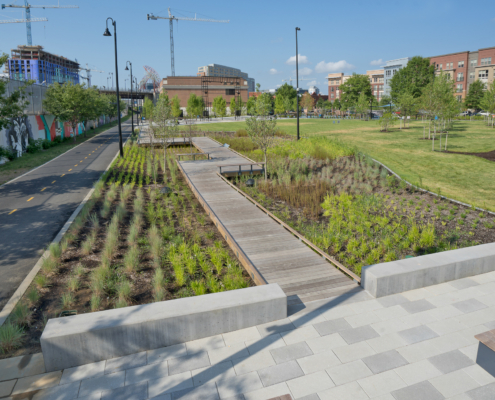 https://www.forresterconstruction.com/wp-content/uploads/2020/11/DSC6510-1.jpg
650
1024
Rachel Hagerty
https://www.forresterconstruction.com/wp-content/uploads/2017/04/forrester-construction-logo-md-340x156.png
Rachel Hagerty2021-05-17 09:58:402021-05-17 09:58:40Alethia Tanner Park Transformation
https://www.forresterconstruction.com/wp-content/uploads/2020/11/DSC6510-1.jpg
650
1024
Rachel Hagerty
https://www.forresterconstruction.com/wp-content/uploads/2017/04/forrester-construction-logo-md-340x156.png
Rachel Hagerty2021-05-17 09:58:402021-05-17 09:58:40Alethia Tanner Park Transformation https://www.forresterconstruction.com/wp-content/uploads/2021/03/DSC2735.jpg
711
1024
Rachel Hagerty
https://www.forresterconstruction.com/wp-content/uploads/2017/04/forrester-construction-logo-md-340x156.png
Rachel Hagerty2021-04-06 10:33:272021-04-06 10:33:27Forrester completes state-of-the-art health care facilities at White Oak Medical Pavilion
https://www.forresterconstruction.com/wp-content/uploads/2021/03/DSC2735.jpg
711
1024
Rachel Hagerty
https://www.forresterconstruction.com/wp-content/uploads/2017/04/forrester-construction-logo-md-340x156.png
Rachel Hagerty2021-04-06 10:33:272021-04-06 10:33:27Forrester completes state-of-the-art health care facilities at White Oak Medical Pavilion https://www.forresterconstruction.com/wp-content/uploads/2021/03/Top-Performer-Logo_2021.png
1024
885
Rachel Hagerty
https://www.forresterconstruction.com/wp-content/uploads/2017/04/forrester-construction-logo-md-340x156.png
Rachel Hagerty2021-03-18 10:19:342022-03-15 09:43:45Forrester Construction Named a Top-performing U.S. Construction Company by ABC
https://www.forresterconstruction.com/wp-content/uploads/2021/03/Top-Performer-Logo_2021.png
1024
885
Rachel Hagerty
https://www.forresterconstruction.com/wp-content/uploads/2017/04/forrester-construction-logo-md-340x156.png
Rachel Hagerty2021-03-18 10:19:342022-03-15 09:43:45Forrester Construction Named a Top-performing U.S. Construction Company by ABC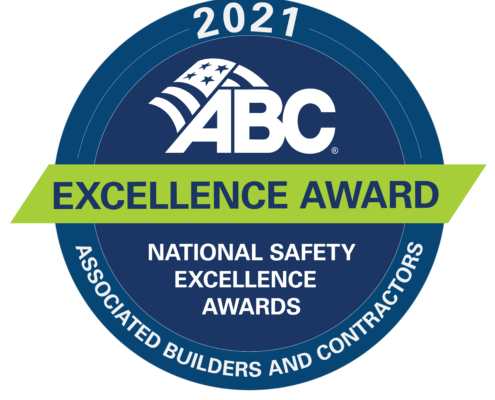 https://www.forresterconstruction.com/wp-content/uploads/2021/03/Safety-Award-Winner-Seal_Excellence.png
1024
1024
Rachel Hagerty
https://www.forresterconstruction.com/wp-content/uploads/2017/04/forrester-construction-logo-md-340x156.png
Rachel Hagerty2021-03-18 10:19:192021-03-18 11:14:11Forrester Construction Earns Third National Safety Award from Associated Builders and Contractors
https://www.forresterconstruction.com/wp-content/uploads/2021/03/Safety-Award-Winner-Seal_Excellence.png
1024
1024
Rachel Hagerty
https://www.forresterconstruction.com/wp-content/uploads/2017/04/forrester-construction-logo-md-340x156.png
Rachel Hagerty2021-03-18 10:19:192021-03-18 11:14:11Forrester Construction Earns Third National Safety Award from Associated Builders and Contractors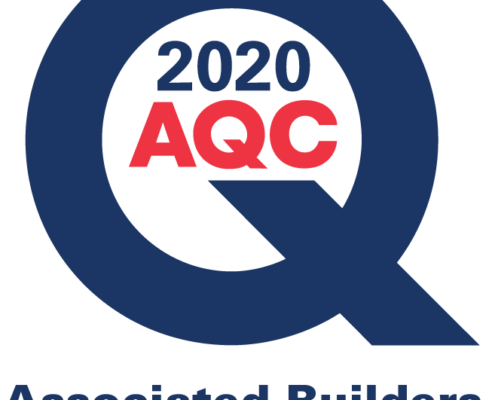 https://www.forresterconstruction.com/wp-content/uploads/2020/11/AQC-logo-2020.png
705
657
Rachel Hagerty
https://www.forresterconstruction.com/wp-content/uploads/2017/04/forrester-construction-logo-md-340x156.png
Rachel Hagerty2020-11-23 14:05:542020-11-24 11:40:48Forrester Construction Named Accredited Quality Contractor by ABC
https://www.forresterconstruction.com/wp-content/uploads/2020/11/AQC-logo-2020.png
705
657
Rachel Hagerty
https://www.forresterconstruction.com/wp-content/uploads/2017/04/forrester-construction-logo-md-340x156.png
Rachel Hagerty2020-11-23 14:05:542020-11-24 11:40:48Forrester Construction Named Accredited Quality Contractor by ABC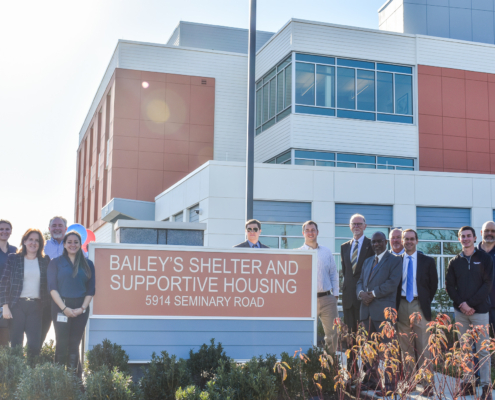 https://www.forresterconstruction.com/wp-content/uploads/2020/11/DSC3658.jpg
683
1024
Rachel Hagerty
https://www.forresterconstruction.com/wp-content/uploads/2017/04/forrester-construction-logo-md-340x156.png
Rachel Hagerty2020-11-23 13:53:412022-08-02 09:33:242020 Industry Awards
https://www.forresterconstruction.com/wp-content/uploads/2020/11/DSC3658.jpg
683
1024
Rachel Hagerty
https://www.forresterconstruction.com/wp-content/uploads/2017/04/forrester-construction-logo-md-340x156.png
Rachel Hagerty2020-11-23 13:53:412022-08-02 09:33:242020 Industry Awards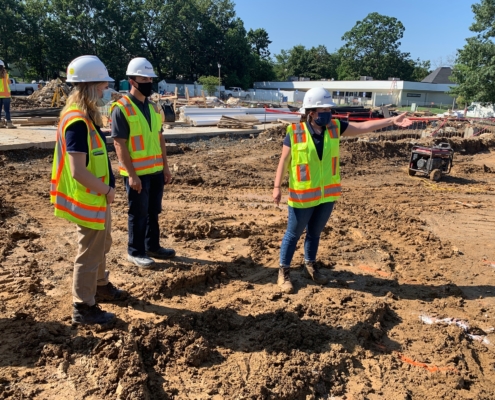 https://www.forresterconstruction.com/wp-content/uploads/2020/08/IMG_2575.jpg
768
1024
Rachel Hagerty
https://www.forresterconstruction.com/wp-content/uploads/2017/04/forrester-construction-logo-md-340x156.png
Rachel Hagerty2020-10-22 13:58:592020-10-22 13:58:59Summer 2020 Internship
https://www.forresterconstruction.com/wp-content/uploads/2020/08/IMG_2575.jpg
768
1024
Rachel Hagerty
https://www.forresterconstruction.com/wp-content/uploads/2017/04/forrester-construction-logo-md-340x156.png
Rachel Hagerty2020-10-22 13:58:592020-10-22 13:58:59Summer 2020 Internship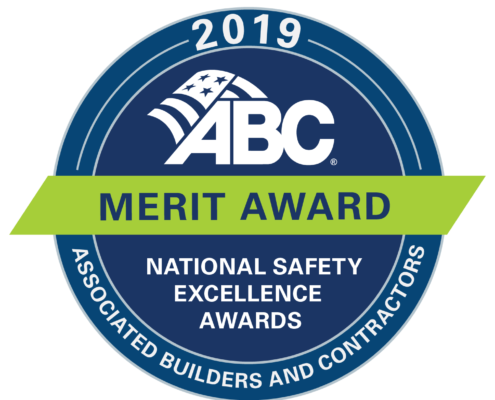 https://www.forresterconstruction.com/wp-content/uploads/2020/04/NSEA-seals-2019_Merit.png
1465
1466
Rachel Hagerty
https://www.forresterconstruction.com/wp-content/uploads/2017/04/forrester-construction-logo-md-340x156.png
Rachel Hagerty2020-04-07 14:59:012020-04-08 07:44:54Forrester Construction Earns Second National Safety Award from Associated Builders and Contractors
https://www.forresterconstruction.com/wp-content/uploads/2020/04/NSEA-seals-2019_Merit.png
1465
1466
Rachel Hagerty
https://www.forresterconstruction.com/wp-content/uploads/2017/04/forrester-construction-logo-md-340x156.png
Rachel Hagerty2020-04-07 14:59:012020-04-08 07:44:54Forrester Construction Earns Second National Safety Award from Associated Builders and Contractors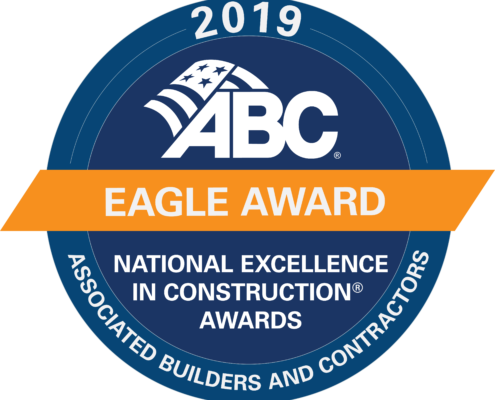 https://www.forresterconstruction.com/wp-content/uploads/2020/04/Eagle-Award-Winner-Seal.png
847
1024
Rachel Hagerty
https://www.forresterconstruction.com/wp-content/uploads/2017/04/forrester-construction-logo-md-340x156.png
Rachel Hagerty2020-04-07 14:58:352020-04-08 07:10:38Forrester Construction Receives National Excellence in Construction Award From Associated Builders and Contractors
https://www.forresterconstruction.com/wp-content/uploads/2020/04/Eagle-Award-Winner-Seal.png
847
1024
Rachel Hagerty
https://www.forresterconstruction.com/wp-content/uploads/2017/04/forrester-construction-logo-md-340x156.png
Rachel Hagerty2020-04-07 14:58:352020-04-08 07:10:38Forrester Construction Receives National Excellence in Construction Award From Associated Builders and Contractors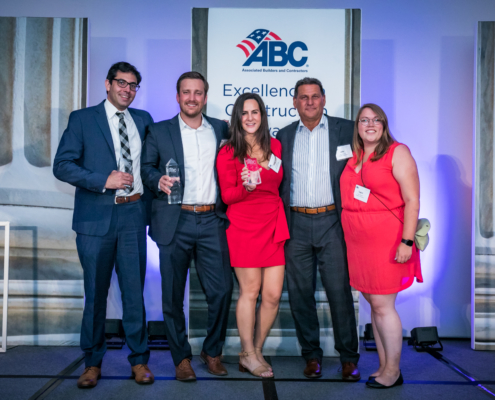 https://www.forresterconstruction.com/wp-content/uploads/2019/12/IMG_1588-scaled.jpg
683
1024
Rachel Hagerty
https://www.forresterconstruction.com/wp-content/uploads/2017/04/forrester-construction-logo-md-340x156.png
Rachel Hagerty2019-12-13 14:35:272020-03-09 08:07:192019 Industry Awards
https://www.forresterconstruction.com/wp-content/uploads/2019/12/IMG_1588-scaled.jpg
683
1024
Rachel Hagerty
https://www.forresterconstruction.com/wp-content/uploads/2017/04/forrester-construction-logo-md-340x156.png
Rachel Hagerty2019-12-13 14:35:272020-03-09 08:07:192019 Industry Awards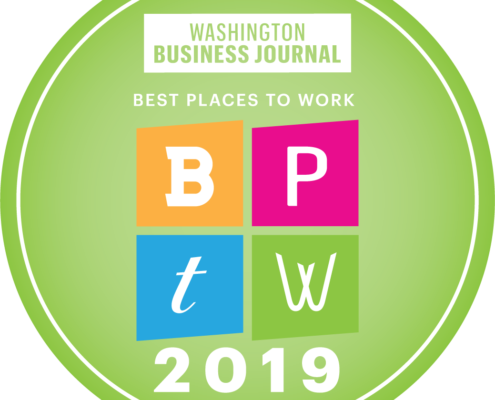 https://www.forresterconstruction.com/wp-content/uploads/2019/04/2019_BPTW_button_HONOREE.png
1039
1039
Rachel Hagerty
https://www.forresterconstruction.com/wp-content/uploads/2017/04/forrester-construction-logo-md-340x156.png
Rachel Hagerty2019-06-13 10:13:432019-06-13 10:13:43Forrester Named Among 2019 Best Places to Work
https://www.forresterconstruction.com/wp-content/uploads/2019/04/2019_BPTW_button_HONOREE.png
1039
1039
Rachel Hagerty
https://www.forresterconstruction.com/wp-content/uploads/2017/04/forrester-construction-logo-md-340x156.png
Rachel Hagerty2019-06-13 10:13:432019-06-13 10:13:43Forrester Named Among 2019 Best Places to Work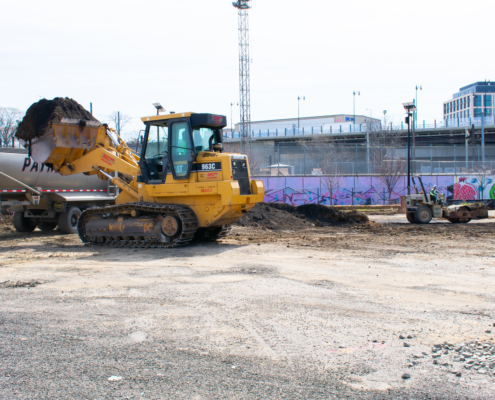 https://www.forresterconstruction.com/wp-content/uploads/2019/04/DSC0002.jpg
683
1024
Rachel Hagerty
https://www.forresterconstruction.com/wp-content/uploads/2017/04/forrester-construction-logo-md-340x156.png
Rachel Hagerty2019-04-30 10:42:522019-04-30 14:56:04Watch Forrester’s Progress at Tanner Park
https://www.forresterconstruction.com/wp-content/uploads/2019/04/DSC0002.jpg
683
1024
Rachel Hagerty
https://www.forresterconstruction.com/wp-content/uploads/2017/04/forrester-construction-logo-md-340x156.png
Rachel Hagerty2019-04-30 10:42:522019-04-30 14:56:04Watch Forrester’s Progress at Tanner Park  https://www.forresterconstruction.com/wp-content/uploads/2019/04/Capture.jpg
450
750
Rachel Hagerty
https://www.forresterconstruction.com/wp-content/uploads/2017/04/forrester-construction-logo-md-340x156.png
Rachel Hagerty2019-04-19 13:16:042019-04-19 13:16:04Forrester to Build Tennis Venue on Roof of Union Market
https://www.forresterconstruction.com/wp-content/uploads/2019/04/Capture.jpg
450
750
Rachel Hagerty
https://www.forresterconstruction.com/wp-content/uploads/2017/04/forrester-construction-logo-md-340x156.png
Rachel Hagerty2019-04-19 13:16:042019-04-19 13:16:04Forrester to Build Tennis Venue on Roof of Union Market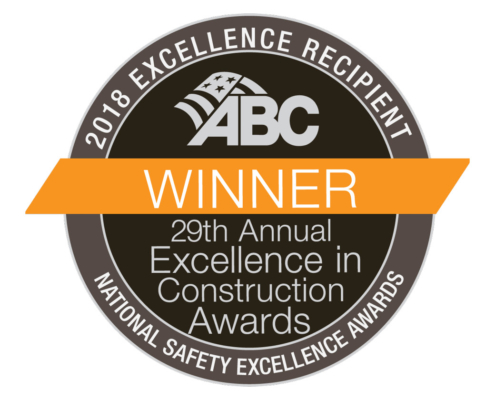 https://www.forresterconstruction.com/wp-content/uploads/2019/04/Facebook.jpg
538
1024
Rachel Hagerty
https://www.forresterconstruction.com/wp-content/uploads/2017/04/forrester-construction-logo-md-340x156.png
Rachel Hagerty2019-04-01 13:03:412019-04-02 12:06:53Forrester Construction Earns National Safety Award from Associated Builders and Contractors
https://www.forresterconstruction.com/wp-content/uploads/2019/04/Facebook.jpg
538
1024
Rachel Hagerty
https://www.forresterconstruction.com/wp-content/uploads/2017/04/forrester-construction-logo-md-340x156.png
Rachel Hagerty2019-04-01 13:03:412019-04-02 12:06:53Forrester Construction Earns National Safety Award from Associated Builders and Contractors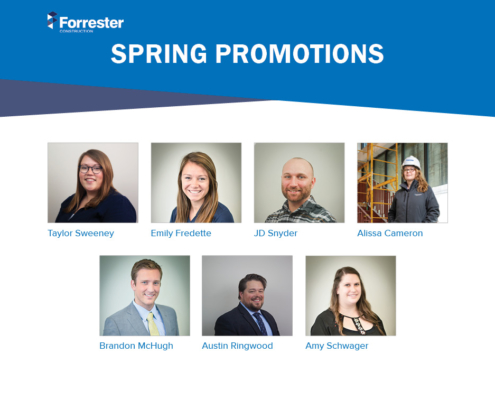 https://www.forresterconstruction.com/wp-content/uploads/2019/03/Spring-2019-Promotions-external2-4.jpg
718
1024
Rachel Hagerty
https://www.forresterconstruction.com/wp-content/uploads/2017/04/forrester-construction-logo-md-340x156.png
Rachel Hagerty2019-03-26 14:02:572019-03-26 14:41:162019 Spring Promotions
https://www.forresterconstruction.com/wp-content/uploads/2019/03/Spring-2019-Promotions-external2-4.jpg
718
1024
Rachel Hagerty
https://www.forresterconstruction.com/wp-content/uploads/2017/04/forrester-construction-logo-md-340x156.png
Rachel Hagerty2019-03-26 14:02:572019-03-26 14:41:162019 Spring Promotions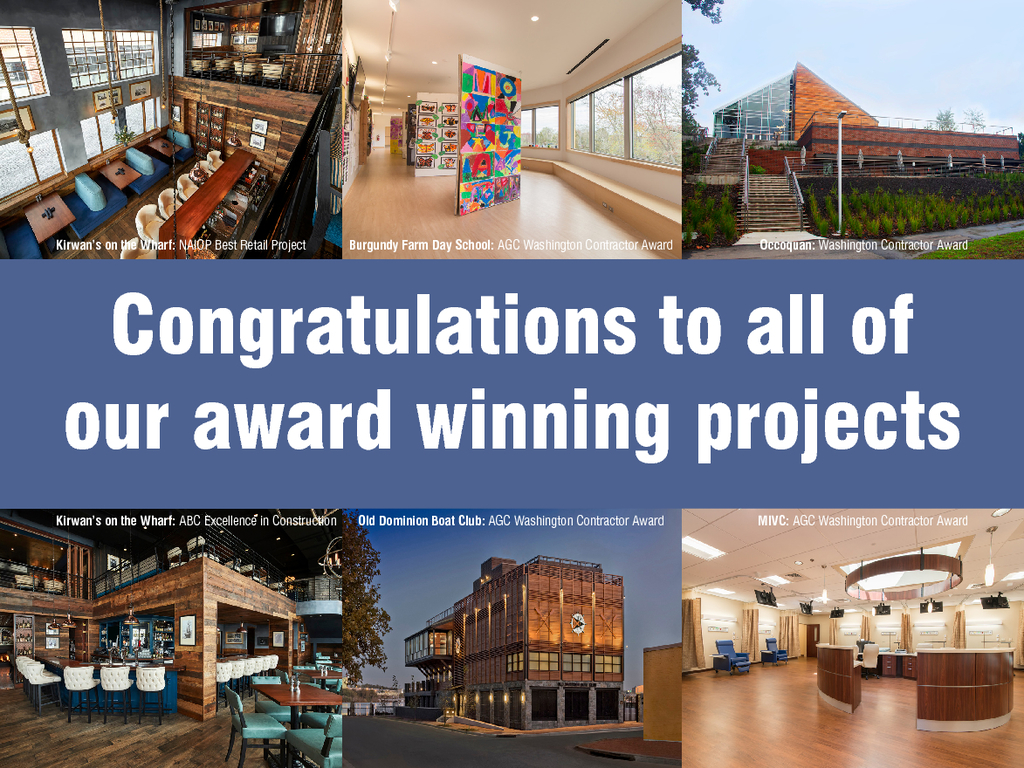 https://www.forresterconstruction.com/wp-content/uploads/2018/11/Awards-pdf.jpg
880
1173
Rachel Hagerty
https://www.forresterconstruction.com/wp-content/uploads/2017/04/forrester-construction-logo-md-340x156.png
Rachel Hagerty2018-11-16 14:25:162018-12-12 12:57:44Fall 2018 Industry Awards
https://www.forresterconstruction.com/wp-content/uploads/2018/11/Awards-pdf.jpg
880
1173
Rachel Hagerty
https://www.forresterconstruction.com/wp-content/uploads/2017/04/forrester-construction-logo-md-340x156.png
Rachel Hagerty2018-11-16 14:25:162018-12-12 12:57:44Fall 2018 Industry Awards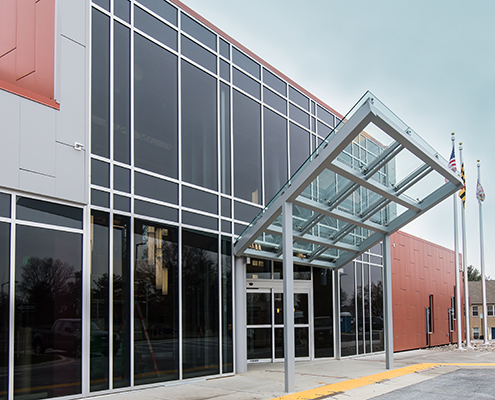 https://www.forresterconstruction.com/wp-content/uploads/2018/04/mivc-ambulatory-healthcare-center-entrance.jpg
400
495
Jessica Bland
https://www.forresterconstruction.com/wp-content/uploads/2017/04/forrester-construction-logo-md-340x156.png
Jessica Bland2018-04-24 13:19:562018-04-25 13:03:10MIVC Grand Opening
https://www.forresterconstruction.com/wp-content/uploads/2018/04/mivc-ambulatory-healthcare-center-entrance.jpg
400
495
Jessica Bland
https://www.forresterconstruction.com/wp-content/uploads/2017/04/forrester-construction-logo-md-340x156.png
Jessica Bland2018-04-24 13:19:562018-04-25 13:03:10MIVC Grand Opening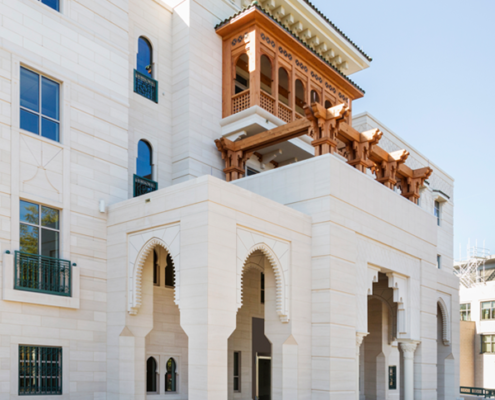 https://www.forresterconstruction.com/wp-content/uploads/2018/01/forrester-chancery-morocco-facade-featured-e1516388796791.png
300
300
Jessica Bland
https://www.forresterconstruction.com/wp-content/uploads/2017/04/forrester-construction-logo-md-340x156.png
Jessica Bland2018-02-11 03:50:072018-02-19 14:19:44Associated General Contractors of Metro DC Spotlights Forrester Construction’s Moroccan Embassy
https://www.forresterconstruction.com/wp-content/uploads/2018/01/forrester-chancery-morocco-facade-featured-e1516388796791.png
300
300
Jessica Bland
https://www.forresterconstruction.com/wp-content/uploads/2017/04/forrester-construction-logo-md-340x156.png
Jessica Bland2018-02-11 03:50:072018-02-19 14:19:44Associated General Contractors of Metro DC Spotlights Forrester Construction’s Moroccan Embassy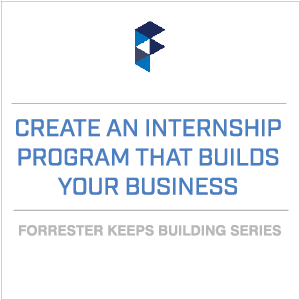
ENR Internships
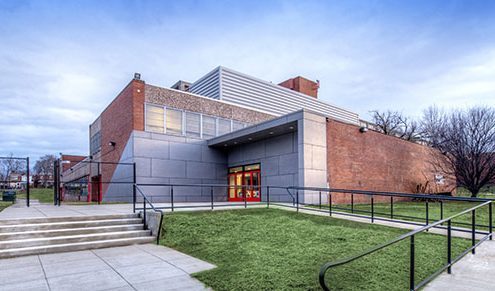 https://www.forresterconstruction.com/wp-content/uploads/2017/04/forrester-construction-logo-md-340x156.png
0
0
Jessica Bland
https://www.forresterconstruction.com/wp-content/uploads/2017/04/forrester-construction-logo-md-340x156.png
Jessica Bland2017-07-12 10:16:592018-02-20 00:37:09David Uffelman Joins Forrester as VP of Operations
https://www.forresterconstruction.com/wp-content/uploads/2017/04/forrester-construction-logo-md-340x156.png
0
0
Jessica Bland
https://www.forresterconstruction.com/wp-content/uploads/2017/04/forrester-construction-logo-md-340x156.png
Jessica Bland2017-07-12 10:16:592018-02-20 00:37:09David Uffelman Joins Forrester as VP of Operations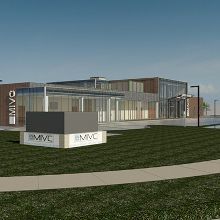 https://www.forresterconstruction.com/wp-content/uploads/2017/07/MIVC-Site-View-square-220x220.jpg
220
220
Jessica Bland
https://www.forresterconstruction.com/wp-content/uploads/2017/04/forrester-construction-logo-md-340x156.png
Jessica Bland2017-06-29 08:00:492018-02-20 00:06:16MIVC Topping Out Announcement
https://www.forresterconstruction.com/wp-content/uploads/2017/07/MIVC-Site-View-square-220x220.jpg
220
220
Jessica Bland
https://www.forresterconstruction.com/wp-content/uploads/2017/04/forrester-construction-logo-md-340x156.png
Jessica Bland2017-06-29 08:00:492018-02-20 00:06:16MIVC Topping Out Announcement https://www.forresterconstruction.com/wp-content/uploads/2017/06/2017_BPTW_button_HONOREE.png
250
250
Jessica Bland
https://www.forresterconstruction.com/wp-content/uploads/2017/04/forrester-construction-logo-md-340x156.png
Jessica Bland2017-06-16 12:19:152018-03-05 22:14:25Forrester Construction Recognized as Best Place to Work by Washington Business Journal
https://www.forresterconstruction.com/wp-content/uploads/2017/06/2017_BPTW_button_HONOREE.png
250
250
Jessica Bland
https://www.forresterconstruction.com/wp-content/uploads/2017/04/forrester-construction-logo-md-340x156.png
Jessica Bland2017-06-16 12:19:152018-03-05 22:14:25Forrester Construction Recognized as Best Place to Work by Washington Business Journal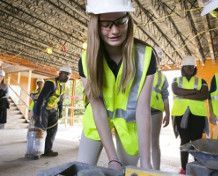 https://www.forresterconstruction.com/wp-content/uploads/2017/04/forrester-construction-foxcroft-2552-218x176.jpg
176
218
Jessica Bland
https://www.forresterconstruction.com/wp-content/uploads/2017/04/forrester-construction-logo-md-340x156.png
Jessica Bland2017-02-27 13:07:182018-02-19 22:25:58Private School Partnerships
https://www.forresterconstruction.com/wp-content/uploads/2017/04/forrester-construction-foxcroft-2552-218x176.jpg
176
218
Jessica Bland
https://www.forresterconstruction.com/wp-content/uploads/2017/04/forrester-construction-logo-md-340x156.png
Jessica Bland2017-02-27 13:07:182018-02-19 22:25:58Private School Partnerships https://www.forresterconstruction.com/wp-content/uploads/2017/04/Don-Free-VP-Forrester-Construction-218x176.jpg
176
218
Jessica Bland
https://www.forresterconstruction.com/wp-content/uploads/2017/04/forrester-construction-logo-md-340x156.png
Jessica Bland2017-01-26 13:20:472018-02-19 22:46:01Donald Free to Lead Forrester’s Preconstruction, Estimating and Purchasing Groups
https://www.forresterconstruction.com/wp-content/uploads/2017/04/Don-Free-VP-Forrester-Construction-218x176.jpg
176
218
Jessica Bland
https://www.forresterconstruction.com/wp-content/uploads/2017/04/forrester-construction-logo-md-340x156.png
Jessica Bland2017-01-26 13:20:472018-02-19 22:46:01Donald Free to Lead Forrester’s Preconstruction, Estimating and Purchasing Groups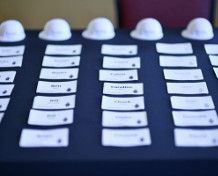 https://www.forresterconstruction.com/wp-content/uploads/2017/04/forrester-construction-employee-meeting-218x176.jpg
176
218
Jessica Bland
https://www.forresterconstruction.com/wp-content/uploads/2017/04/forrester-construction-logo-md-340x156.png
Jessica Bland2017-01-10 16:24:502018-03-10 12:22:58Engaging Employees & Maximizing Performance
https://www.forresterconstruction.com/wp-content/uploads/2017/04/forrester-construction-employee-meeting-218x176.jpg
176
218
Jessica Bland
https://www.forresterconstruction.com/wp-content/uploads/2017/04/forrester-construction-logo-md-340x156.png
Jessica Bland2017-01-10 16:24:502018-03-10 12:22:58Engaging Employees & Maximizing Performance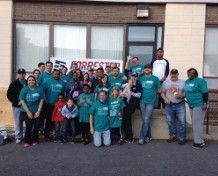 https://www.forresterconstruction.com/wp-content/uploads/2017/04/forrester-construction-community-involvement-day-2014-interfaith-works-218x176.jpg
176
218
Jessica Bland
https://www.forresterconstruction.com/wp-content/uploads/2017/04/forrester-construction-logo-md-340x156.png
Jessica Bland2016-12-21 03:44:202018-03-05 22:34:34Forrester and Interfaith Works
https://www.forresterconstruction.com/wp-content/uploads/2017/04/forrester-construction-community-involvement-day-2014-interfaith-works-218x176.jpg
176
218
Jessica Bland
https://www.forresterconstruction.com/wp-content/uploads/2017/04/forrester-construction-logo-md-340x156.png
Jessica Bland2016-12-21 03:44:202018-03-05 22:34:34Forrester and Interfaith Works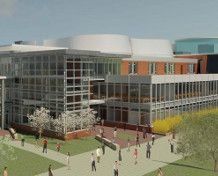
Prince George’s Community College Lanham Hall Project Underway
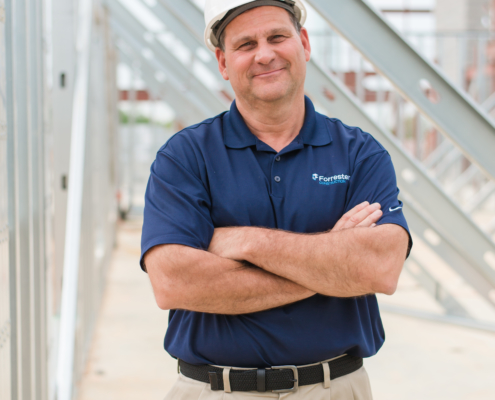 https://www.forresterconstruction.com/wp-content/uploads/2019/04/Faces-of-Forrester-Spring-2018-29.jpg
1024
684
Jessica Bland
https://www.forresterconstruction.com/wp-content/uploads/2017/04/forrester-construction-logo-md-340x156.png
Jessica Bland2016-07-20 05:30:072023-02-28 12:31:13Forrester Announces Executive Leadership
https://www.forresterconstruction.com/wp-content/uploads/2019/04/Faces-of-Forrester-Spring-2018-29.jpg
1024
684
Jessica Bland
https://www.forresterconstruction.com/wp-content/uploads/2017/04/forrester-construction-logo-md-340x156.png
Jessica Bland2016-07-20 05:30:072023-02-28 12:31:13Forrester Announces Executive Leadership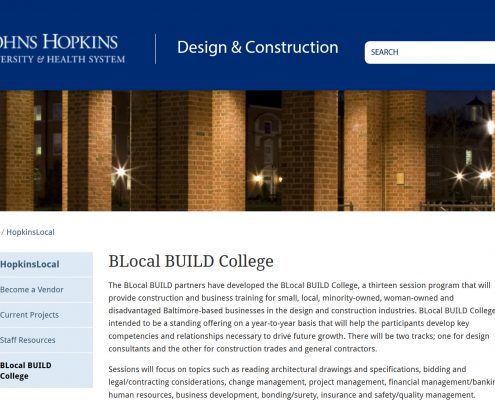
Forrester Keeps Small Businesses Building with BLocal BUILD College

Forrester Receives ABC National Excellence In Construction Award
Forrester Wins 2015 ABC Platinum STEP Award
Forrester Wins Three Trade Association Awards
 https://www.forresterconstruction.com/wp-content/uploads/2015/07/exterior1-edited-for-web.jpg
291
505
Jessica Bland
https://www.forresterconstruction.com/wp-content/uploads/2017/04/forrester-construction-logo-md-340x156.png
Jessica Bland2015-07-21 20:46:232018-03-10 16:06:23Maya Angelou Learning Center wins 2015 National DBIA Award
https://www.forresterconstruction.com/wp-content/uploads/2015/07/exterior1-edited-for-web.jpg
291
505
Jessica Bland
https://www.forresterconstruction.com/wp-content/uploads/2017/04/forrester-construction-logo-md-340x156.png
Jessica Bland2015-07-21 20:46:232018-03-10 16:06:23Maya Angelou Learning Center wins 2015 National DBIA Award
Forrester Wins 10th ABC Platinum STEP Safety Award

Forrester Construction Earns ABC National Excellence in Construction Award

Forrester Selected for Arlington National Cemetery Project

Forrester Completes $18M Renovation of the National Museum of Natural History.

Forrester Completes Columbarium Court No. 9 at Arlington National Cemetery.

Forrester Begins Work on Historic Morrison-Clark Inn Addition.

Forrester Wins 20 Awards in 2012.

Forrester Completes Construction of minibar by José Andrés.

Forrester Construction Upgrades Boys & Girls Club Facility.

Forrester Begins $12M Construction of Aquilino Cancer Center.

Forrester Completes State-of-the-Art Seal and Sea Lion Exhibit

Forrester and EYP honored with a Design-Build Institute of America Award.

Robinson Nature Center wins a Green Project Award from USGBC Maryland.

Presidents Obama And Clinton Tour Forrester’s 815 Connecticut Avenue Project.

Forrester Wins Three ENR Regional Best Projects of 2011 Awards.

Forrester to break ground at historic Yuma Study Center in Washington, DC.

Forrester Construction Wins Five AGC of DC Washington Contractor Awards.

Forrester Construction Company Wins Two ABC Metro Washington Awards

Forrester Construction Company Adopts Orr Boys and Girls Club in SE DC.

Forrester Construction to upgrade Orr Boys and Girls Club

Forrester breaks ground at $100 Million Wakefield High School in Arlington, VA

Forrester Construction Company receives four NAIOP MD/DC Awards of Excellence

Forrester Achieved the Perfect Balance at ASH

Forrester Earns Two National Excellence in Construction Awards from ABC

Forrester Breaks Ground at new Glenmont Metro Station Parking Garage

Forrester Construction Provides Food to the Capital Area Food Bank

Forrester Completes $100 Million Modernization for the Navy

Forrester Construction Wins Three Mid-Atlantic Construction Best of 2010 Awards

Forrester’s ASH Project presented with LEED Platinum Certification by USGBC.

Forrester Construction Announces 2010 Fall Campus Visits

Forrester Construction Wins Three 2010 AGC of DC Washington Contractor Awards

Forrester wins four ABC Metro Washington Excellence in Construction Awards

ASH – 2021 L Street receives highest LEED Rating

Restoration of the DC War Memorial, Washington, DC

Forrester has been awarded the $25 Million NARMC Headquarters and Dental Clinic

Wideband Satellite Operations Center, Fort Detrick, MD

Forrester Construction wins the Design Build GSA ATF Facility

Forrester has been awarded two 2010 NAIOP MD / DC Awards.

Read the Q4 2009 Metro DC Architectural Confidence Index (ACI) Survey Results

Forrester Wins the Rehabilitation of 16 Historic Overlooks along Skyline Drive

$25 Million Seal / Sea Lion Life Support Facility and Site Renewal

Read the Q3 2009 Metro DC Architectural Confidence Index (ACI) Survey Results

Read the Q3 2009 Metro DC Architectural Confidence Index (ACI) Survey Results

Read the Q2 2009 Metro DC Architectural Confidence Index (ACI) Survey Results

Forrester is awarded the Robinson Nature Center in Howard County, Maryland

US Supreme Court – Roof System Replacement, Washington, DC

Fort McHenry National Education and Administration Center, Baltimore, MD

Forrester Projects win five WBC Craftsmanship Awards including a Star Award

$14 Million Design Build Hubbard Hall, US Naval Academy

Forrester Construction receives “Private Sector Firm” of the Year Award

Forrester Construction Completes Ford’s Theatre Renovation

Forrester Wins Two Northern Virginia NAIOP Awards

$70 Million D/B NCIS & OJAG Headquarters Modernization

Forrester Begins Construction of New $48 Million DOES Headquarters Building

ASHA went for the Gold and Got It!

Forrester Construction Wins Four Mid-Atlantic Construction Best of 2008 Awards

Forrester Wins Six 2008 ABC Metro Washington Excellence in Construction Awards

Forrester Construction reaches out to the Laurel Boys and Girls Club

Forrester Construction Announces 2008 Campus Visits

Landon School, Bethesda, MD

Zola Wine Store and Test Kitchen, Washington, DC

Walker Jones School, Washington, DC

Founding Farmers Restaurant Project, Washington, DC

Woodward Restaurant, Washington, DC

H. Carl Moultrie Courthouse/ Indiana Avenue Entrance Renovation, Washington, DC

Award Winning Safety Program

Vida Fitness – Metropole, Washington, DC

Housing Opportunities Commission Shared Facilities Building, Rockville, MD

The Heritage Foundation, Washington, DC

Clear Channel Radio, DC Phase II, Rockville, MD

Loudoun Country Day School, Leesburg, VA

BioReliance, Rockville, MD

2008 WBC Craftsmanship Award

Design/Build Construct Operations Facility (COF)

Clemens Crossing Elementary School, Columbia, MD

